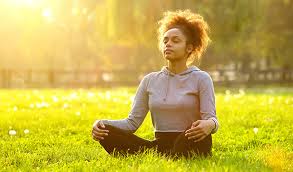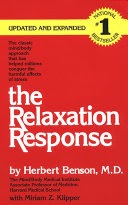The Art of Relaxation: Effective Techniques to Unwind and De-stress
In today’s fast-paced world, finding time to relax and unwind is essential for our mental and physical well-being. Stress can take a toll on our bodies and minds, leading to various health issues if not managed properly. Fortunately, there are numerous relaxation techniques that can help us combat stress and achieve a state of calmness and tranquility.
Deep Breathing Exercises
One of the simplest yet most effective relaxation techniques is deep breathing. By taking slow, deep breaths in through your nose and exhaling slowly through your mouth, you can activate your body’s relaxation response. Deep breathing helps lower heart rate, reduce blood pressure, and promote a sense of calmness.
Progressive Muscle Relaxation
This technique involves tensing and then relaxing each muscle group in your body, starting from your toes and working your way up to your head. Progressive muscle relaxation helps release physical tension and can be especially beneficial for those experiencing muscle tightness due to stress.
Mindfulness Meditation
Mindfulness meditation involves focusing on the present moment without judgment. By practicing mindfulness, you can train your mind to let go of worries about the past or future, leading to reduced stress levels and increased clarity of thought.
Guided Imagery
Guided imagery involves visualizing peaceful scenes or scenarios that evoke feelings of relaxation and tranquility. By immersing yourself in these mental images, you can create a sense of calmness that helps alleviate stress and anxiety.
Aromatherapy
Aromatherapy uses essential oils extracted from plants to promote relaxation and improve overall well-being. Scents like lavender, chamomile, and rosemary are known for their calming properties and can be used in diffusers or applied topically for aromatherapy benefits.
By incorporating these relaxation techniques into your daily routine, you can effectively manage stress levels, improve sleep quality, and enhance your overall quality of life. Remember that self-care is not selfish; it is essential for maintaining a healthy mind-body balance in today’s hectic world.
8 Effective Relaxation Techniques to Reduce Stress and Improve Well-Being
- Practice deep breathing exercises
- Meditate for a few minutes each day
- Engage in physical activities like yoga or stretching
- Listen to calming music or nature sounds
- Take short breaks throughout the day to relax your mind
- Try progressive muscle relaxation techniques
- Spend time in nature or outdoors for a change of environment
- Limit screen time before bedtime to improve sleep quality
Practice deep breathing exercises
Practicing deep breathing exercises is a simple yet powerful way to promote relaxation and reduce stress levels. By taking slow, deliberate breaths in through your nose and exhaling slowly through your mouth, you can activate your body’s natural relaxation response. Deep breathing helps calm the mind, lower heart rate, and decrease muscle tension, allowing you to experience a sense of calmness and tranquility. Incorporating deep breathing exercises into your daily routine can help you manage stress more effectively and improve your overall well-being.
Meditate for a few minutes each day
Meditating for a few minutes each day can have a profound impact on your overall well-being. Taking the time to quiet your mind, focus on your breath, and be present in the moment can help reduce stress, improve concentration, and promote a sense of inner peace. Even just a few minutes of daily meditation can make a difference in how you navigate the challenges and demands of everyday life, allowing you to cultivate a greater sense of calm and clarity amidst the hustle and bustle of daily routines.
Engage in physical activities like yoga or stretching
Engaging in physical activities like yoga or stretching can be a highly effective way to relax and unwind. Yoga combines gentle movements with deep breathing and mindfulness, promoting physical flexibility, mental clarity, and emotional balance. Similarly, stretching exercises help release tension from muscles, improve circulation, and enhance overall relaxation. By incorporating these activities into your routine, you can not only reduce stress levels but also boost your physical well-being and cultivate a sense of inner peace.
Listen to calming music or nature sounds
Listening to calming music or nature sounds is a powerful relaxation technique that can help soothe the mind and reduce stress levels. The gentle melodies of instrumental music or the tranquil sounds of nature, such as flowing water or birds chirping, have a calming effect on our nervous system. By immersing ourselves in these soothing sounds, we can create a peaceful environment that promotes relaxation, improves focus, and enhances overall well-being. Incorporating calming music or nature sounds into our daily routine can be a simple yet effective way to unwind and destress after a long day.
Take short breaks throughout the day to relax your mind
Taking short breaks throughout the day to relax your mind is a simple yet powerful way to combat stress and improve overall well-being. By stepping away from work or daily responsibilities for even just a few minutes, you give your mind a chance to reset and recharge. Whether it’s a brief walk outside, a few moments of deep breathing, or simply closing your eyes and focusing on your breath, these short breaks can help reduce mental fatigue, increase focus and productivity, and promote a sense of calmness amidst the hustle and bustle of daily life. Incorporating regular relaxation breaks into your day can make a significant difference in how you feel and function, ultimately leading to a more balanced and fulfilling lifestyle.
Try progressive muscle relaxation techniques
Progressive muscle relaxation techniques involve systematically tensing and then relaxing different muscle groups in the body to release physical tension and promote a deep sense of relaxation. By focusing on each muscle group individually, starting from the toes and working up to the head, this technique can help alleviate stress and improve overall well-being. Incorporating progressive muscle relaxation into your daily routine can be a powerful way to unwind, reduce anxiety, and cultivate a greater sense of calmness in both body and mind.
Spend time in nature or outdoors for a change of environment
Spending time in nature or outdoors can be a rejuvenating experience that offers a change of scenery from our daily routines. The fresh air, natural surroundings, and sounds of the outdoors can help us disconnect from the hustle and bustle of urban life, promoting relaxation and a sense of calmness. Whether it’s taking a leisurely walk in the park, hiking through the woods, or simply sitting by a tranquil lake, immersing ourselves in nature can provide a much-needed mental and emotional break, allowing us to recharge and unwind.
Limit screen time before bedtime to improve sleep quality
Limiting screen time before bedtime is a crucial tip for improving sleep quality. The blue light emitted by screens, such as those on smartphones, tablets, and computers, can disrupt our body’s natural sleep-wake cycle and inhibit the production of melatonin, the hormone that regulates sleep. By reducing exposure to screens at least an hour before bedtime, we allow our brains to wind down and prepare for restful sleep. This simple adjustment can lead to better sleep quality, improved mood, and increased daytime alertness.



